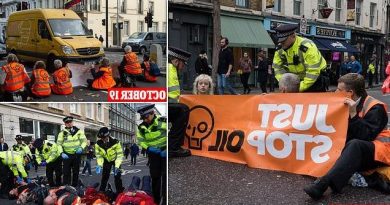Covid-19 coronavirus: Jacinda Ardern says 15 calls made to KFC worker’s family
Prime Minister Jacinda Ardern has reviewed her comments when she said she was frustrated a Covid-infected person continued working at KFC and will not be apologising.
Case L, the sister of a Papatoetoe High School student, wasn’t isolating at home and went to work at KFC Botany three days before she tested positive for the virus.
She said she was never told to isolate and only her sister received a text message saying she needed to be tested and isolate.
Ardern said about 15 texts and phone calls were made to the family.
“In my mind everyone at Papatoetoe High School getting a test felt really clear to me,” Ardern said.
Ardern said if Case L’s sister, Case I, had been tested when directed to by the school and the public health unit the situation could’ve been avoided.
“I’ll go back to look at what we could have done in addition to that message.”
The Section 70 order came into effect amid the second round of testing at the school.
Act MP David Seymour says the only way to find out if the Government is trying to save face, by blaming the latest Covid community cases, is to release details of what occurred.
“The Government needs to release full details of the contacts made with the family of cases L, M, N and O at the centre of the South Auckland cluster,” he said.
Seymour claimed Ardern was “drip-feeding details” and avoiding scrutiny of her Government’s performance while she “whips up anger” towards unnamed individuals.
“We have at least one member of the family in the public absolutely at odds with the Government story over the level of contact.
“The Prime Minister says she’s checked the logs and she’s satisfied – so release the logs prime minister; release all the evidence.”
KFC worker wants apology from PM
Case L told Discovery the Prime Minister’s comments – that she should have been self-isolating – were “upsetting”, and she wanted an apology.
“It’s not fair on our end that we’re getting all this backlash for something that we haven’t actually done,” she told Discovery.
Ardern’s office said letters from public health were sent to the family on February 17 and 19 saying they needed to be tested. Case L’s family said such advice was never received.
“If they tried to contact us multiple times and send us letters and stuff, where is this evidence?” she told Discovery.
Meanwhile, whether or not Auckland is dealing with a bigger Covid-19 cluster will not be known until the next day or two, when a group of gymgoers are tested for the virus for the first time tomorrow.
People who were at City Fitness Papatoetoe at the same time as a young man, who later tested positive for Covid, are considered to be casual plus contacts.
The last time the 21-year-old was at the gym, inside Hunters Plaza, was on Friday (February 26) between 3.25pm and 4.30pm.
As casual plus contacts, they need to have a test on or after day five from the date that they were last exposed to the case, the Ministry of Health says.
The official definition of a casual plus contact is someone who has been exposed to a case where there may be a higher risk of transmission – but who does not meet the criteria of a close contact.
No need for police, Bloomfield says
The fate of those who breached lockdown and isolation rules, plunging Auckland back into lockdown, now sits squarely in the lap of director general of health Dr Ashley Bloomfield.
But Bloomfield has indicated he won’t ask the police to take action over the Covid breaches.
He said he wasn’t getting the police involved so far this lockdown because the families needed support to navigate isolation.
On not getting police involved at the outset, Bloomfield said: “In the first instance we get our health providers to go out because often what it is the families just need support to stay isolated safely. If we have any issues or challenges or if we can’t find people then we don’t hesitate to involve the police.”
He said he spoke to the Police Commissioner yesterday who told him they are “willing and ready and standing by as they need to”.
He said in this outbreak close contacts were being called daily and if no one was at home, health officials would then involve the police.
He said he did not think a punitive approach was the best way to counter the virus and get people on board.
Source: Read Full Article

/cloudfront-ap-southeast-2.images.arcpublishing.com/nzme/GHOHAOQJNSDBW5WCDZCDJE6NDY.jpg)

